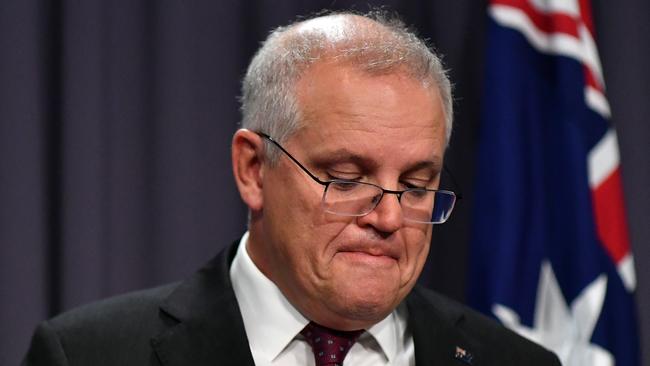
Scott Morrison confronts a long-seeded cultural change originating in the everyday experiences of women yet an ideological movement filled with revolutionary dimensions. Fifty years ago most people saw sexual relations as a private issue — but sexual relations are now a political issue, indeed a frontline political issue.
The Liberal Party struggles to manage this, just as conservative parties around the world struggle with such a revolutionary change. It arises from two events — the almost mundane demand of feminism that women be treated with genuine respect in every aspect of life and the rise of the politics of the self, the politicisation of feelings and of psychological oppression no longer to be tolerated.
For most of the 20th century domestic politics was about economic issues, incomes, living standards, benefits and the realm of the objective world. The ideological struggle was between Marxism and liberal capitalist democracy. Conservatives understood and often thrived in this brand of politics, producing tangible economic policy answers.
But the 21st century has seen a decisive transition. Politics is becoming dominated by culture — the demand for changes in the values and norms that define acceptable human behaviour. It is about “how I live my life”, and this becomes a moral issue. Oppression is no longer seen just as economic; it is seen as a psychological attack on the self.
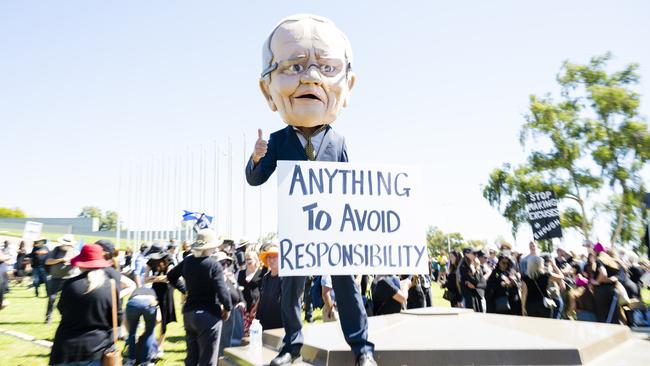
The affirmation of one’s identity — based on race, sex and gender — is a demand being lodged both on society and the political system. Politics is now about feelings, emotions and respect for individual identity. For women, the problem is not just the crime of rape but what underpins the crime — an unacceptable power structure that has tolerated disrespectful, intimidating behaviour towards women for too long.
This movement reflects the rising culture of individual empowerment. People are no longer prepared to conform to past norms as they decide those norms were offensive and demand repudiation. This is a cultural movement seeking to rearrange interpersonal relations and power structures — a movement where progressives thrive but where the conservative mind, geared to duty and authority, is apprehensive about its unintended consequences.
Once the sense of oppression takes hold, the question becomes political — it means a challenge to power. That’s what Morrison is experiencing right now. The established rules as handed down by government and male authority are under assault. It means women are empowered to come forward with stories of past harassment and rape.
It means the Prime Minister has lost control of the agenda. And Morrison prioritises control. For a year he has thrived in a crisis typified by old politics — a pandemic and recession demanding urgent fiscal, economic and social policy responses. The government has proved its worth.
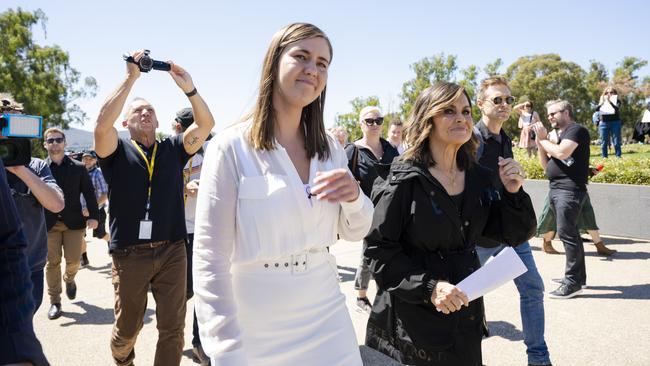
It didn’t see the Brittany Higgins eruption coming and, when it did, it underestimated the danger. Morrison struggled to get the language, tone and responses right. This wasn’t just a one-off allegation by a staffer who felt she had been treated as a political problem, but for the Morrison government it was a test of its empathy, compassion and how it would treat any woman facing sexual assault.
The Higgins allegations released a dam wall of injustice that became a cultural movement with Morrison as its political target.
For Morrison this crisis has two interconnecting challenges — as Prime Minister he must seek to change the culture but as a political leader he must defend his government against Labor’s weaponised attack over the rape allegations.
These tasks are plagued by contradictions. Morrison’s problem is that the more he defends his government against Labor’s political attack — witness his defence of Christian Porter — the more he is condemned for failing the bigger cultural challenge facing his office.
Morrison’s dilemma is that governments have only limited ability to change the culture. Normally it is the culture that changes governments. But leaders must talk to the culture, and show by language and action their capacity to make a difference. A frustrated Morrison said on Tuesday this cultural challenge “is not something that is of a scale that any government can simply change, it is something we must change as a society”.
That’s right and hence his problem — being asked to meet an unattainable test. Claims that Morrison must lead the way as John Howard did on guns or Paul Keating did on Mabo are slick politics but false comparisons. There is no silver bullet or defining legislative solution here. Morrison was right with his media conference on Tuesday to seek to reset this issue, but he only partially succeeded.
His performance was a mix of contrition, appeal, passion and defiance. Morrison admitted his past language had offended people, but his trouble is that these grabs will be used against him at the next election. Believing he has been subject to unjustified attack, he said women had taught him everything and were “the centre of my life” — his wife, widowed mother and daughters. He had put more women into cabinet than any previous prime minister. He tried to explain himself to the nation.
The heart of Morrison’s effort was a passionate statement — it is not OK for women to feel afraid when walking from the train station, to be talked over by a man, to be marginalised, intimidated, belittled and objectified by blindness or malevolence. Morrison got that right, but it came four weeks too late. The sense of revulsion and emotion he displayed on Tuesday should have come from the start — but conservatives are slow to emote in support of agendas of far-reaching cultural change.
“We must get this house in order,” Morrison said after further shocking revelations about the activities of government staff. He signalled his preference to embrace quotas to get more Liberal women into the parliament, a stance guaranteed to provoke an intense internal debate. But there was another problem.
Morrison allowed himself to be provoked by the media and, in a flash of anger, raised the question of a harassment issue within the media. That was a mistake. It told a story: Morrison has been shaken by these events. He has lost his touch and seems prone to mistakes and misjudgments. Labor will feel emboldened but Labor should beware; this movement will run everywhere and Labor, sooner or later, will be enmeshed.
The government’s instinct is to shift the agenda to the economy and vaccines. And that will happen. But Morrison was right on Tuesday to try to salvage credibility on this issue. He must continue that approach and he must do more. His job is to show that conservatives have an effective voice on justice for women.



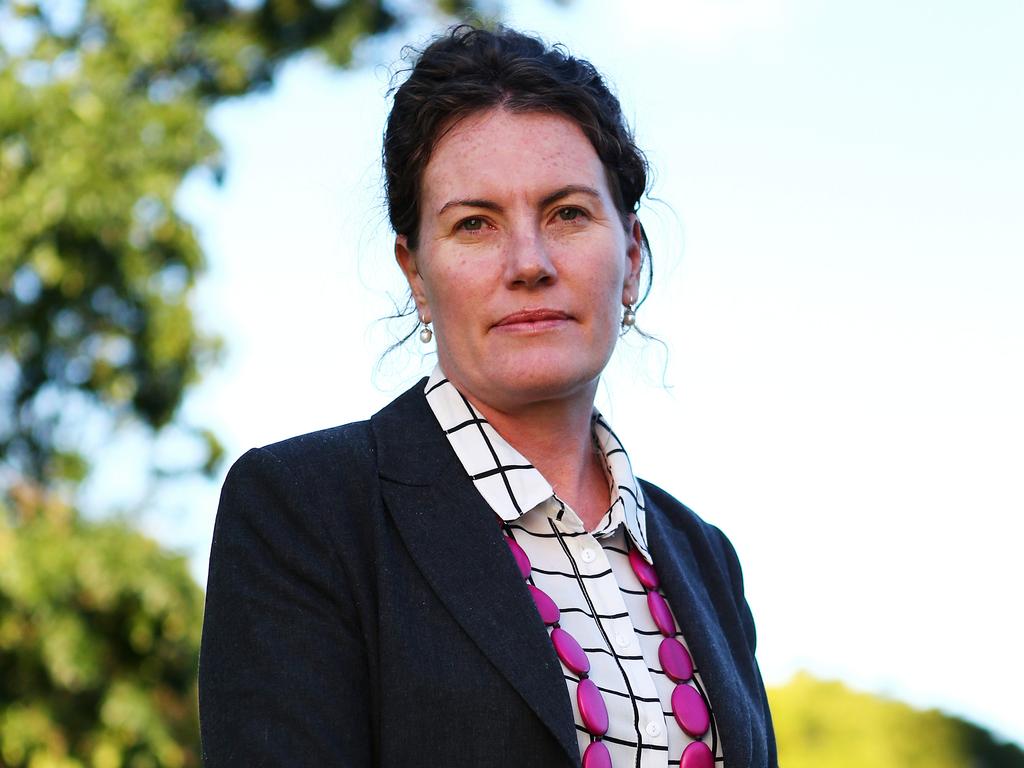

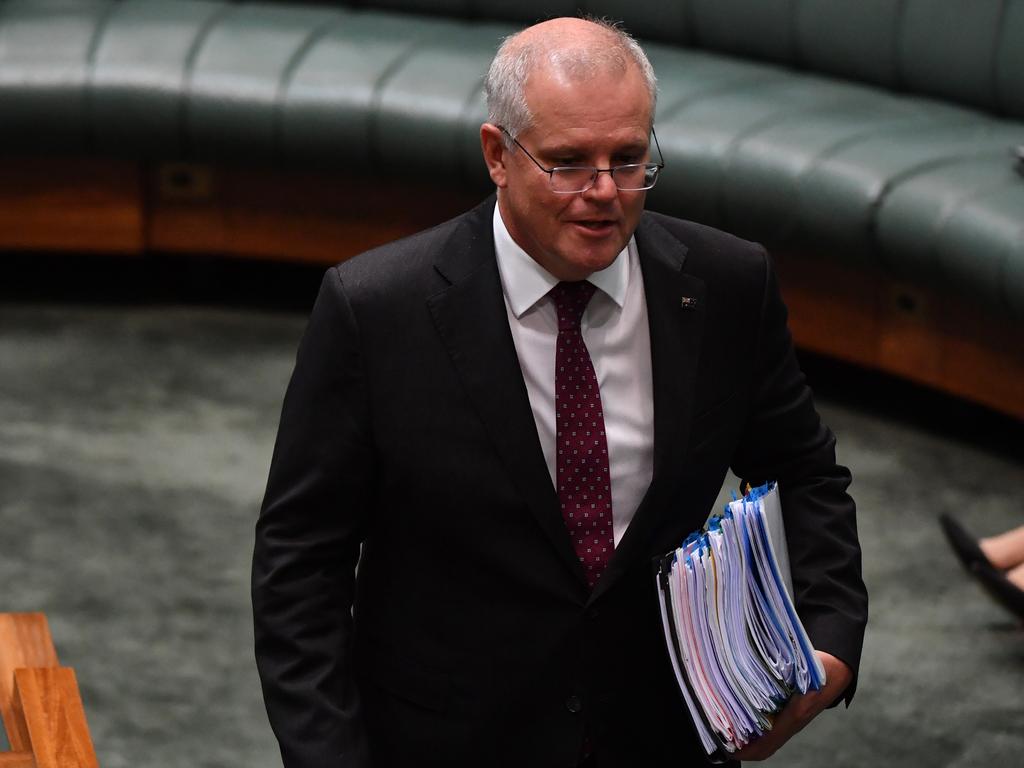


In the contemporary world, politics follows culture. But what has happened in Australia over the past month is that culture is not predetermining politics — it is devouring politics.